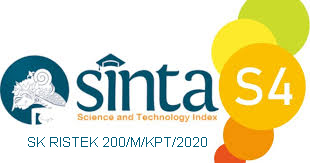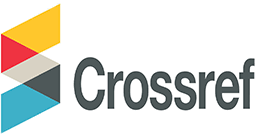Application of Data Mining to Determine Promotion Strategy Using Algorithm Clustering at SMK Yadika 1
Abstract
Keywords
Full Text:
PDFReferences
Sumangkut, K., Lumenta, A. S. M. and Tulenan, V. 2016. Analysis of Daily Mart supermarket shopping patterns to determine the layout of goods using the FP-Growth Algorithm. Journal of Informatics Engineering, 8(1).
Budiman, I. 2015. Application of Classification Data Mining Functions for Prediction of Timely Student Study Period in Higher Education Academic Information Systems. Journal of Jupiter, 7(1), pp. 39–50.
Badrul, M. 2016. Association Algorithm With Apriori Algorithm for Sales Data Analysis. Journal of Pilar Nusa Mandiri, 12(2), pp. 121–129.
Asril, E., Wiza, F. and Yunefri, Y. 2015. Analysis of Graduate Data with Data Mining to Support the Promotion Strategy of Lancang Kuning University. Journal of Information & Communication Technology Digital Zone, 6(2), pp. 24-32.
Priambudi, D. S. 2015. Pt.Mayora's Product Sales Strategy Using Apriori Methods And Data Mining Implementation. Thesis Article, pp. 1–9.
Rony, S. 2016. Data Mining Application Using K-Means Clustering Algorithm to Determine New Student Promotion Strategy (Case Study: Polytechnic Lp3i Jakarta). Journal of Lanterns ICT, 3(1), pp. 76–92.
Suprawoto, T. 2016. Classification of Student Data Using the K-Means Method to Support the Selection of Marketing Strategies. Journal of Informatics and Computers, 1(1), pp. 12–18.
Wirta, A. and Erlin. 2016. Implementation of the K-Means Cluster Analysis Method for Selecting New Student Admission Promotion Strategies. National Seminar on computer science, pp. 9–15.
Mochammad C. A. 2018. Data Mining Uses the K-Means Algorithm to determine promotion strategies in intentional vocational schools. Thesis Article, pp. 1–12.
Achyani, Y. E. 2018. Application of Particle Swarm Optimization Method in Optimizing Direct Marketing Predictions. Journal of Informatics, 5(1), pp. 1–11.
Kusumo, H., Sediyono, E. and Marwata, M. 2019. Analysis of Apriori Algorithms to Support Higher Education Promotion Strategies. Walisongo Journal of Information Technology, 1(1), p. 49.
Jaini, A. 2019. Application of the Fuzzy C-Means Algorithm and K-Medoids for Grouping Sales and Product Marketing Strategies. State Islamic University of Sultan Syarif Kasim Riau.
Takdirillah, R. 2020. Application of Data Mining Using Apriori Algorithm Against Transaction Data to Support Sales Strategy Information. Journal of Informatics Education, 4(1), pp. 37–46.
DOI: https://doi.org/10.31326/jisa.v5i1.1107
Refbacks
- There are currently no refbacks.
Copyright (c) 2022 Jerry Watulangkouw

This work is licensed under a Creative Commons Attribution-ShareAlike 4.0 International License.
JOURNAL IDENTITY
Journal Name: JISA (Jurnal Informatika dan Sains)
e-ISSN: 2614-8404, p-ISSN: 2776-3234
Publisher: Program Studi Teknik Informatika Universitas Trilogi
Publication Schedule: June and December
Language: English
APC: The Journal Charges Fees for Publishing
Indexing: EBSCO , DOAJ, Google Scholar, Arsip Relawan Jurnal Indonesia, Directory of Research Journals Indexing, Index Copernicus International, PKP Index, Science and Technology Index (SINTA, S4) , Garuda Index
OAI address: http://trilogi.ac.id/journal/ks/index.php/JISA/oai
Contact: jisa@trilogi.ac.id
Sponsored by: DOI – Digital Object Identifier Crossref, Universitas Trilogi
In Collaboration With: Indonesian Artificial Intelligent Ecosystem(IAIE), Relawan Jurnal Indonesia, Jurnal Teknologi dan Sistem Komputer (JTSiskom)
JISA (Jurnal Informatika dan Sains) is Published by Program Studi Teknik Informatika, Universitas Trilogi under Creative Commons Attribution-ShareAlike 4.0 International License.


















